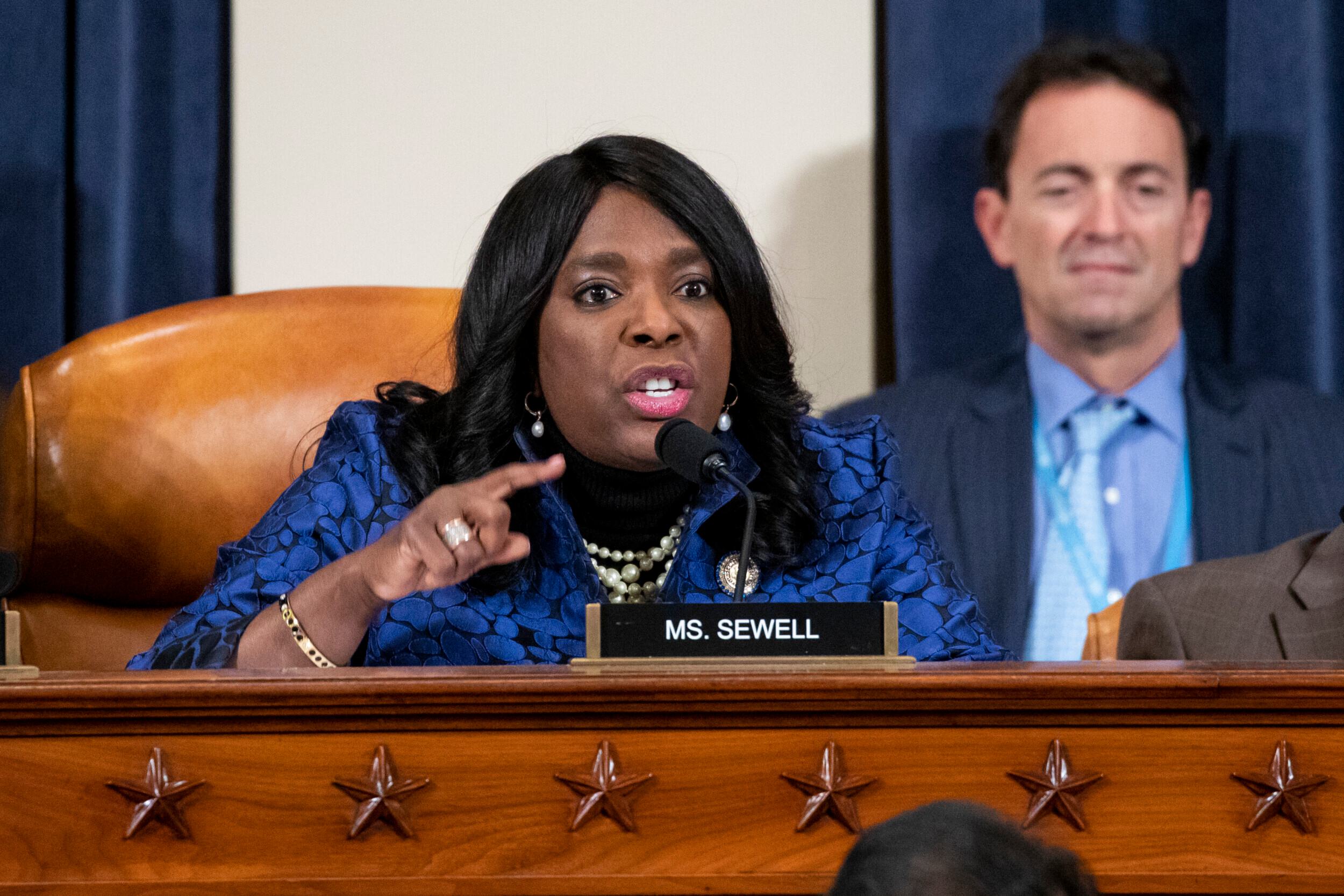U.S. Rep Terri Sewell (D-Birmingham) and members of the Congressional Black Caucus (CBC) urged a federal court to throw out a new congressional map recently passed by Republicans and have a court-appointed special master draw a new map for the 2024 congressional elections in Alabama.
According to a brief by Sewell and CBC members filed on Thursday, "The redistricting plan Alabama legislators approved on July 21, S.B. 5 ('the Livingston Plan'), dilutes the voting strength of Black voters in Alabama and violates Section 2 of the Voting Rights Act ('VRA')."
"As such, S.B. 5 entrenches the historical exclusion of Black Alabamians from participating in our American democracy. Instead of creating a second district where Black voters have an opportunity to elect a Black-preferred candidate, S.B. 5 has created a 38.8%-Black voting age population ('BVAP') district—proposed Congressional District 2 ('CD2'). With only a 38.8% BVAP share of the electorate, a Black candidate under the Livingston's Plan's CD2 would be certain to lose," Robert Fram, an attorney for Sewell and CBC members, wrote in the brief. "As expert testimony provided by the Plaintiffs indicates, given the history of racially polarized voting in the precincts that comprise proposed CD2, a Black candidate is not likely to obtain more than 42.3% of the total vote in that district."
A federal court hearing with a three-judge panel to decide whether the map passed by Republicans will stand for the 2024 election is set to begin on August 14 at the Hugo L. Black Federal Courthouse in Birmingham.
Under the new map, the seventh congressional district currently represented by Sewell would have a 51% black voting-age population, a decline of 4% from the map passed in 2021. The second congressional district would lose Autauga County, Conecuh County and parts of Elmore and Covington Counties while adding Lowndes, Macon and Russell Counties. The black voting-age population in the district would increase from 32% to approximately 40%.
Fram continued, "The high racial polarization in proposed CD2 renders impossible electoral victory by any Black-preferred candidate. The newly enacted congressional district map fails to achieve the goals set forth by the Supreme Court in Allen v. Milligan."
"As this Court has stated, in a conclusion endorsed by the Supreme Court, Alabama needs to enact a map that contains two districts where Black voters constitute a majority or "something quite close to it." Proposed Congressional District 2 does not remotely come close," Fram said. "The Alabama Legislature's defiance of the Supreme Court's directive clearly demonstrates its ongoing commitment to protecting the political preferences of a white majority."
Adam Kincaid, executive director of the National Republican Redistricting Trust, told 1819 News on Thursday, "It is absurd to argue that Alabama is defying the Supreme Court because the Supreme Court issued no order for the state to defy."
"The Supreme Court merely agreed with the District Court that plaintiffs proved a reasonable likelihood that Alabama likely violated the Voting Rights Act and outlined how a redistricting plan can be drawn to comply with the law," he added. "Alabama repealed its previous map and enacted a new one that better adhered to the guidelines laid out in the Supreme Court's opinion in Allen v. Milligan. SB5 is not a potential remedy. It is a new enacted map. Democrats' desire to continue litigating the first map rather than the new one is an acknowledgement that SB5 is on much stronger footing than the now-repealed plan."
To connect with the author of this story or to comment, email caleb.taylor@1819News.com.
Don't miss out! Subscribe to our newsletter and get our top stories every weekday morning.










